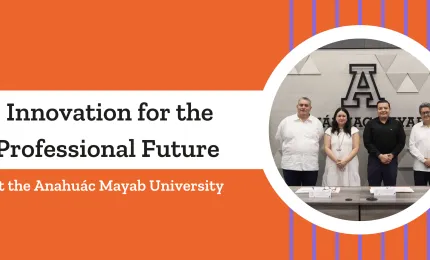Curiosity, creativity, knowledge and professional growth are just some of the reasons why millions of people around the world decide to pursue a postgraduate diploma: Knowing what a postgraduate diploma is for is just the beginning of a path towards exploring the full potential of a professional.
Find out more about this type of academic offering, its definition, advantages and characteristics, in order to make a decision that leads you to discover new talents and delve deeper into all your areas of interest.
What is a Postgraduate Diploma?
A postgraduate diploma is a type of academic offering that lasts less than a bachelor's, master's or doctoral degree; the training usually does not exceed 120 hours – between six months and one year – divided into several modules that delve into specific topics about an area of knowledge.
Main features of a Postgraduate Diploma
The main characteristics include their duration, but other factors are also taken into account, such as the fact that they are taught by prestigious universities or higher education institutions that have highly trained personnel in multidisciplinary subjects and with a sufficiently extensive background to be considered experts in a subject.
Unlike an academic degree, people who complete a Postgraduate Diploma do not obtain a title that authorizes them to carry out a specific activity, as would be the case with a bachelor's or master's degree, but rather they receive a postgraduate diploma in which the institution certifies that they have completed all the modules and that their preparation has been satisfactory.
In general terms, the main characteristics of the Postgraduate Diplomas are:
They have a shorter duration than other academic degrees
One of the main differentiators of a postgraduate diploma is its duration: An academic offering of this type usually consists of several modules that accumulate between 80 and 120 hours, although these could vary depending on the institution and the particular needs of the study program.
This makes them extremely attractive to those people who are interested in a specific topic, either to gain general knowledge or to delve deeper into it, and thus determine what the next steps to take in their professional future are.
In most cases, they do not require prior specialization.
Another advantage of taking a postgraduate diploma program is that access to these does not require numerous steps such as an entrance exam, extensive documentation for registration or specialized training, except in specific cases (usually in exact sciences or natural sciences).
The format of the postgraduate diplomas does not require prior specialization – whether an academic degree or proof of a number of years of professional experience – nor full availability, since it is a complementary option where the hours invested are not long enough to carry out academic essays or research, theoretical or practical exams or final works such as thesis.
They tend to be more flexible and accessible than other academic offerings.
Studying a postgraduate diploma could mean significant advantages for professionals, especially given the fact that technological advances today allow for flexible programs, both in-person and online, which increases options and expands students' knowledge, while allowing them to connect with people from different parts of the world with whom they share similar interests.
The different study modalities also make them more attractive for students, since there are a greater number of options and an official document certifying learning is obtained for a fraction of the cost of a master's or doctorate.
What is a Postgraduate Diploma for? Its main advantages
The aim of the postgraduate diploma is to offer a broader preparation without the student being forced to take a multi-year programme that requires a qualification exam. This makes it the ideal option for those who wish to complement their knowledge in a specific subject or continue their academic preparation with short-term programmes.
If you are looking to access a more in-depth academic preparation, but are not necessarily interested in a postgraduate degree, then the Postgraduate Diploma is the ideal option for you, as it offers important advantages for professionals who are eager for knowledge and whose curiosity goes beyond the need to take a workshop or short course.
Increase competitive advantage
The reality is that people with better training tend to access more coveted positions within a company or, alternatively, to create their own opportunities thanks to the exploration of their own creativity, leadership and learning capacity.
Studying a postgraduate course is an opportunity to create learning spaces in which professionals discover new interests and acquire different skills that they can apply in their environments or develop personal projects that will bear fruit in the short, medium and long term.
This is achieved through direct communication with experienced teachers who are trained to guide students in their learning process, sharing strategies to overcome obstacles and establish specific professional goals.
Connections are created with colleagues
It is important to know what postgraduate diplomas are, but it is also key to understand all the potential they offer; one of them is the creation of professional networks with colleagues who share similar interests to yours. This opens the way to the creation of collaborative and multidisciplinary projects through dialogue, teamwork and leadership.
Looking at different realities from new perspectives and complementing them with dialogue with other professionals is also a way of learning to find answers and creating opportunities for growth in the future.
Specialization with less time investment
What is a postgraduate diploma for? To learn more in less time and, consequently, with a lower investment than in other programs. Many people are interested in increasing their knowledge of a particular subject, but they do not have the time available to take a new bachelor's or master's degree, so a postgraduate diploma is a realistic alternative according to their schedules.
This is especially useful for those who are entrepreneurs or have a full-time job, as Postgraduate Diplomas are often offered on weekends or in a flexible distance learning format that suits the needs of most students.
How to know which one to choose?
Now you know what a postgraduate diploma is and what it's for, but there's one crucial step left: How do you choose one that suits your specific interests? Some of the considerations to take into account include:
- That it be offered by a university qualified to grant a Postgraduate Diploma endorsed by the Ministry of Public Education.
- That the Postgraduate Diploma course schedule is compatible with your work schedule.
- That teachers have extensive experience and that study topics are constantly updated.
If you are thinking of studying a Postgraduate Diploma, we invite you to learn about the wide range of academic offerings offered by the Anáhuac University Network, which has a catalog of 400 in-person and online Postgraduate Diplomas to train positive action leaders throughout Mexico. Learn more by clicking here .




